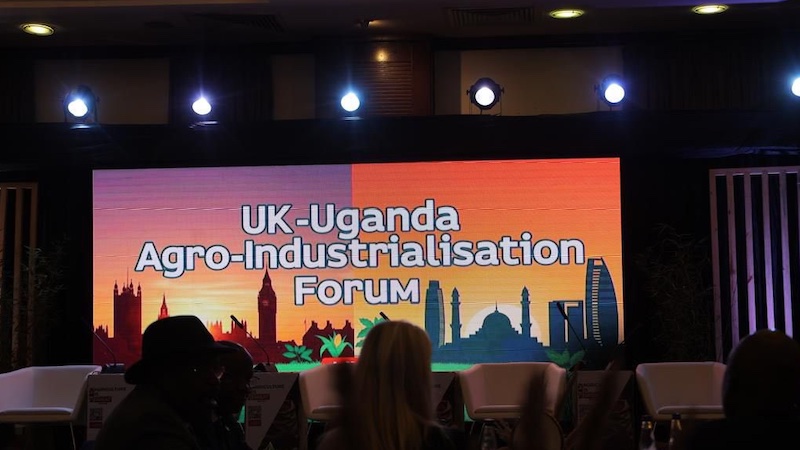
General Wilson Mbadi, minister of state for Trade, says Uganda has an ambitious goal of elevating its agro-export economy to $20 billion by 2040, emphasizing collaboration with partners such as the United Kingdom.
He outlined that this objective will be realized by enhancing access to credit for small-scale farmers, providing long-term capital for small and medium-sized enterprises, and improving agricultural production through the use of superior seeds, fertilizers and irrigation systems.
These remarks were made during the recent UK-Uganda Agro-Industrialization Forum held at the Serena hotel, which aimed to enhance productivity, trade, exports, and climate resilience for Ugandan farmers.
Mbadi underscored the critical role of agriculture in Uganda’s economy, noting that it employs more than 70 per cent of the population, yet its potential remains largely untapped.
He emphasized that the government’s agro-industrialization policy, a cornerstone of the fourth National Development Plan IV (NDPIV), is essential for boosting productivity and competitiveness in the sector.
He also highlighted the United Kingdom’s expertise in advanced agricultural technologies as vital for boosting Uganda’s agricultural productivity. The introduction of direct flights between Uganda and the UK is expected to facilitate the export of goods such as fish, coffee, fruits and vegetables, thereby reducing trade barriers and fostering growth in bilateral trade.
Furthermore, Mbadi acknowledged the UK as a key partner, noting that in 2024, Uganda exported $28 million worth of goods while importing $71 million from the UK. He encouraged UK-based companies to invest in Uganda’s key agricultural value chains, including coffee, maize, beef and dairy, and emphasized the opportunities that lie ahead.
He emphasized the potential within agro-industrial parks and the importance of facilities dedicated to processing, packaging and regulatory compliance. The event also featured the presence of Lisa Chesney, the British high commissioner to Uganda, and Major General David Kasura Kyomukama, the permanent secretary of Agriculture.
In her address, Chesney stated, “The UK is committed to our partnership with Uganda and to working collaboratively to accelerate sustainable development and foster mutually beneficial economic growth. We recognize that achieving this objective requires a transformation of agriculture, which is Uganda’s largest employer. I am, therefore, enthusiastic about convening public and private sector leaders to explore how the UK and Uganda can strengthen our established ties in the agricultural sector, enhancing farm productivity, exports, climate resilience, and supporting Uganda’s ambitious goal of ten-fold growth.”
The UK has a longstanding history of collaboration with Uganda’s agricultural sector. For instance, UK- based Nexus Green has partnered with the ministry of Water & Environment to implement irrigation schemes for farmers nationwide.
Additionally, the UK’s £39 million Climate Smart Jobs program is actively engaging with businesses, researchers and financial institutions to enhance productivity and climate resilience among farmers in Northern Uganda.
Through its Developing Countries Trading Scheme, the UK has also facilitated easier access for Ugandan exporters to place their products on the shelves of UK retailers. Major General David Kasura Kyomukama expressed gratitude to the UK for its substantial annual financial support to Uganda through various channels, including direct funding for organizations and programs focused on development, humanitarian aid, and trade.
“For the fiscal year 2022/2023, the UK’s aid budget for Uganda was reported at £32.8 million. The trade relationship between Uganda and the UK is significant, with coffee being one of Uganda’s primary exports to the UK.”



